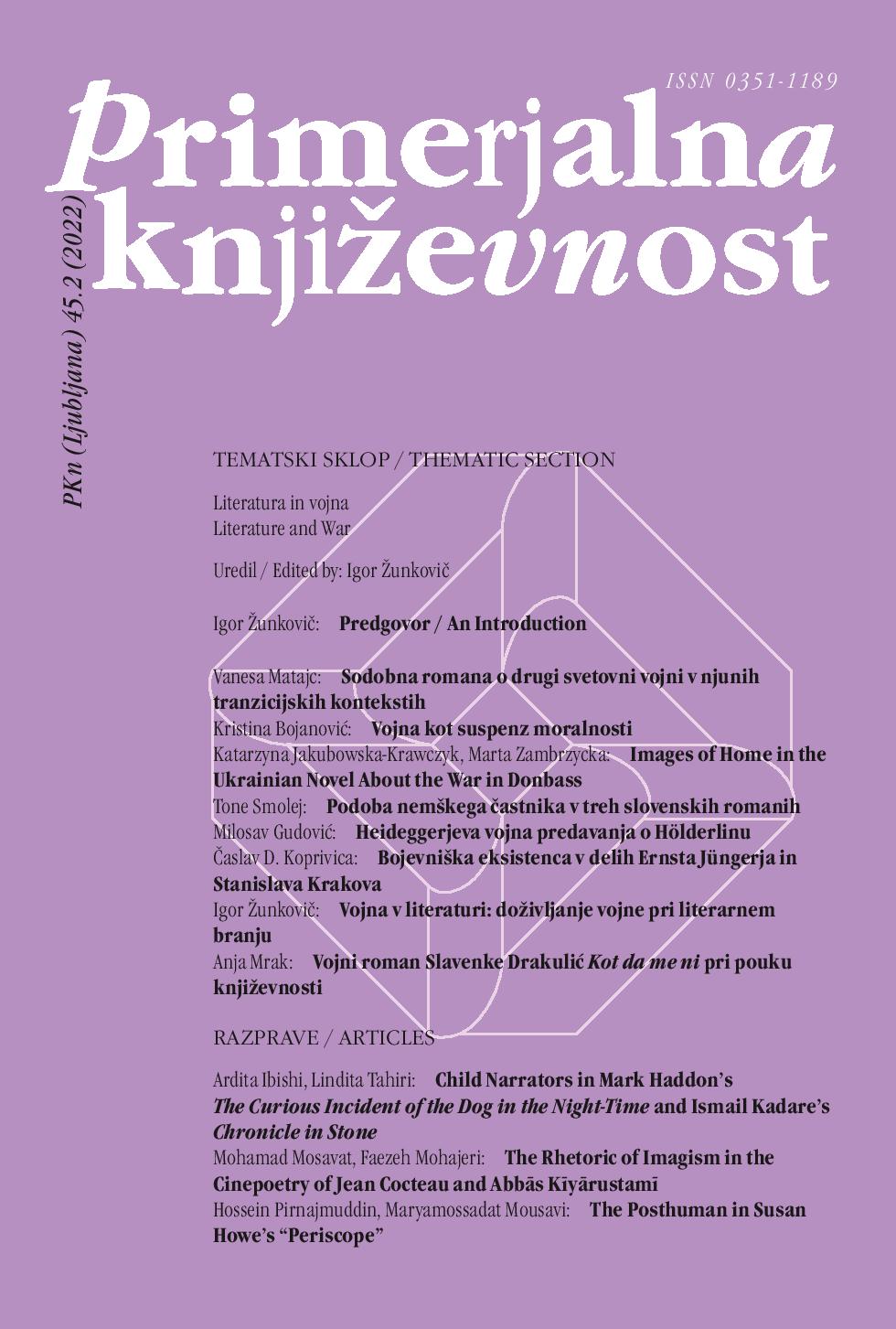War in Literature: The Experience of War in Reading Literature
DOI:
https://doi.org/10.3986/pkn.v45.i2.07Keywords:
literature and war, cognitive literary studies, documentary literature, Aleksijevič, Svetlana, reading, emotions, empathyAbstract
The study of literary representations of war and other possible connections between literature and war is one of the most current areas of literary research. An important contribution can also be made by second-generation cognitive literary studies, which focuses on the study of literary reading, taking into account the neurobiology of reading and the embodiment of experiential processes in reading. In this article, I elaborate on the theory and analyze the case of Nobel Prize winner Svetlana Aleksijevič’s Chernobyl Prayer to examine the particular effect that reading literature can have compared to reading historical or non-literary documentary prose. I focus in particular on one of the introductory testimonies in the collection, narrated by Lyudmila Ignatenko. Based on the understanding of the embodiment of reading, I analyze the emotional (empathic) and motor effect of the literalization of this story, which highlights the particular experiential side of this story and of literature in general. The latter consists not only in a particular literary perspective or understanding, but in the possibility of a particular experience of what is read.
References
Altman, Ulrike, idr. »Fact vs Fiction: How Paratextual Information Shapes Our Reading Processes«. <em>Social Cognitive and Affective Neuroscience (SCAN)</em> 9.1 (2014): 22–29.
Armstrong, Paul. <em>Kako se literatura igra z možgani?</em> Ljubljana: ZZFF, 2015.
Aziz-Zadeh, Lisa, in Antonio Damasio. »Embodied Semantics for Actions: Findings from Functional Brain Imaging«. <em>Journal of Physiology-Paris</em> 102.1–3 (2008): 35–39.
Fernandino, Leonardo, idr. »Where Is the Action? Action Sentence Processing in Parkinson’s Disease«. <em>Neuropsychologia</em> 51.8 (2013): 1510–1517.
Ghio, Marta, in Marco Tettamanti. »Grounding Sentence Processing in the Sensory-Motor System«. <em>Neurobiology of Language</em>. Ur. Gregory Hickok in Steven Small. London: Elsevier, 2016. 647–657.
Goldman, Alvin, in Frederique de Vignemont. »Is Social Cognition Embodied?« <em>Trends in Cognitive Science</em> 13.4 (2009): 154–159.
Hauk, Olaf. »What Does It Mean?« <em>Neurobiology of Language</em>. Ur. Gregory Hickok in Steven Small. London: Elsevier, 2016. 777–788.
Naccache, Lionel, idr. »A Direct Intercranial Record of Emotions Evoked by Subliminal Words«. <em>Proceedings of the National Academy of Sciences</em> 102.21 (2005): 7713–7717.
Nakamura, Kimihiro, Inomata, Tomoe, in Uno, Akira. »Left Amygdala Regulates the Cerebral Reading Network During Fast Emotion Word Processing«. <em>Frontiers in Psychology</em> 11.2 (2020): 1–12.
Perenič, Urška. »H konceptu medialnosti, tretjič (predgovor)«. <em>Primerjalna književnost</em> 40.1 (2017): 1–4.
Sontag, Susan. »Zoper interpretacijo«. Prev. Lučka Jenčič. <em>Sodobnost</em> 26.4 (1978): 431–438.


